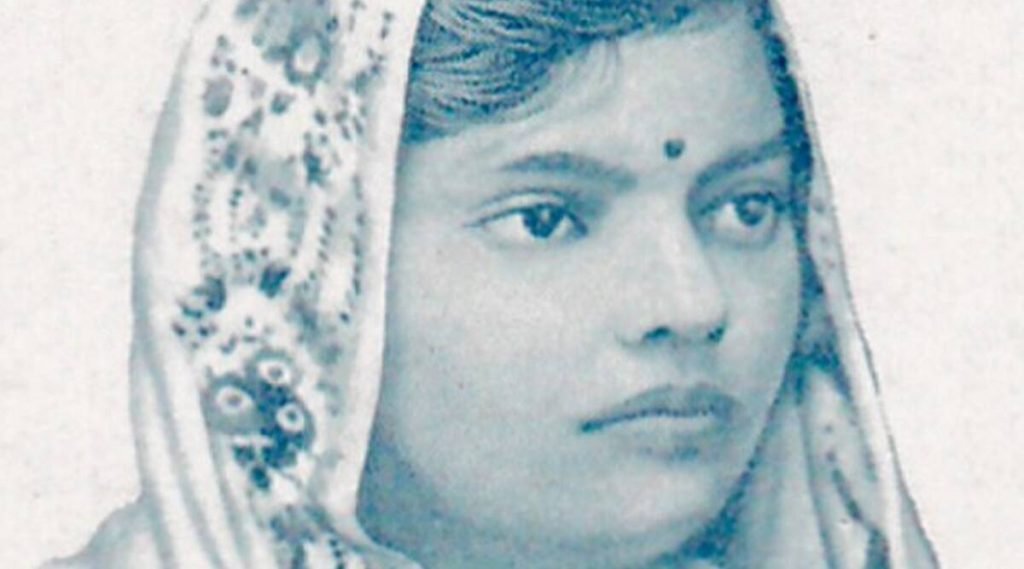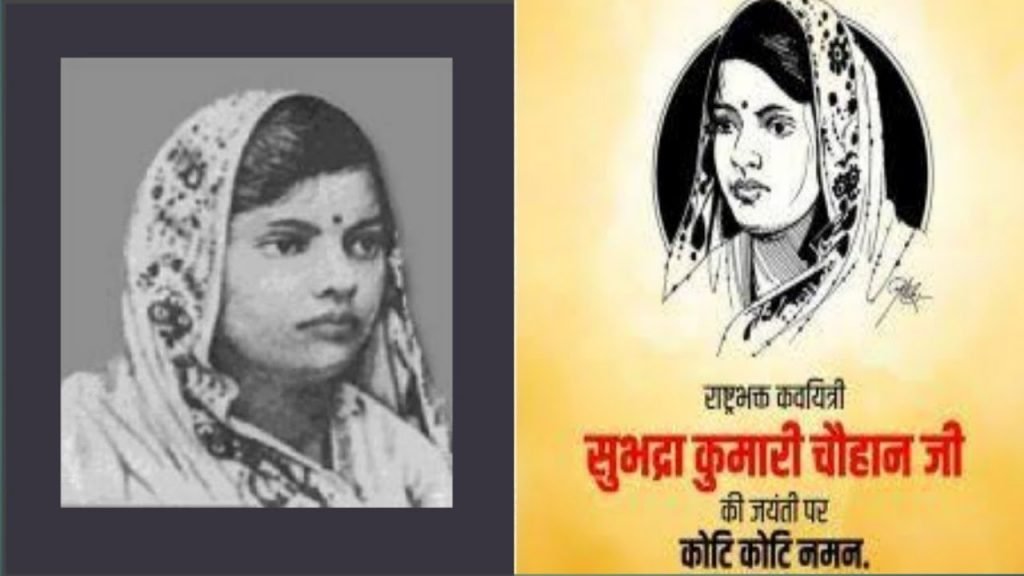Subhadra Kumari Chauhan was a famouse writer and freedom fighter whose work rose to national prominence during the male-dominated era of literature.

Chauhan’s evocative nationalist poem “Jhansi Ki Rani” is widely regarded as one of the most widely read poems in Hindi literature.

Subhadra Kumari Chauhan was born in 1904 in Nihalpur village. She was also known to constantly write in a horse carriage on her way to school, and her first poem was published at the age of just nine. The call for independence reached its peak during her early adulthood. As a participant in the Indian nationalist movement, he used his poetry to inspire others to fight for the sovereignty of his country.
Chauhan’s poetry and prose mainly centered around the difficulties that Indian women conquered, such as gender and caste discrimination. His poetry was conspicuously underlined by his steadfast nationalism. In 1923, Chauhan’s steadfast activism led her to become the first female Satyagrahi of an Indian group of non-violent colonialists to be arrested in the struggle for national liberation. He continued to make revolutionary statements in the struggle for independence both on and off Page in the 1940s, publishing a total of 88 poems and 46 short stories.
Today, Chauhan’s poetry remains a staple in many Indian classrooms as a symbol of historical progress, encouraging future generations to stand up against social injustice and celebrate the words that have shaped the nation’s history. .
Through her works, she spoke about gender and caste discrimination faced by women, which makes them relevant even today.
Chauhan eventually became the first woman Satyagrahi in 1923. He was arrested twice in the 1924–42 struggle, but his determination to arouse nationalist pride helped him to publish 88 poems and 46 short stories.
The influential poet is still famous around the world. Chauhan died in a road accident on 15 February 1948 at the age of 44.
His daughter Sudha and grandson Professor Alok Rai are carrying on his legacy. Mila Tej Se Tej (As Effulgens Met Effulgens), a book written by Sudha, describes her mother’s life and times, while Prof Alok Rai is translating her memoirs into English.

